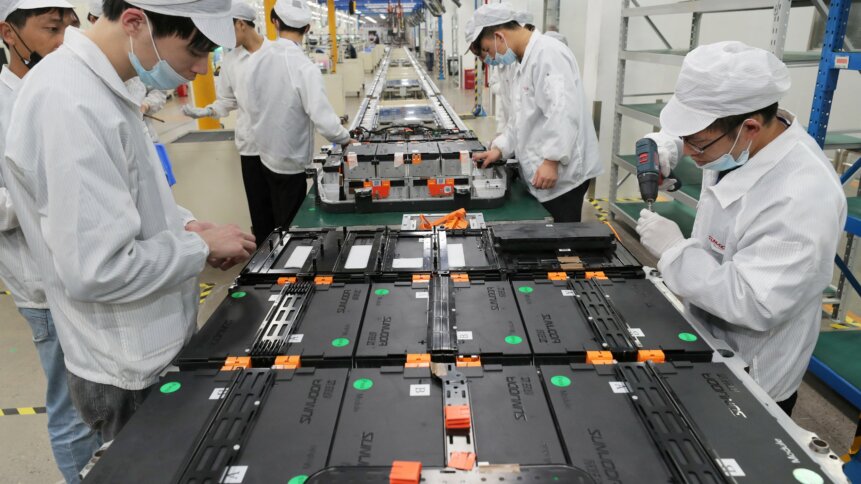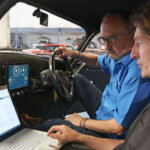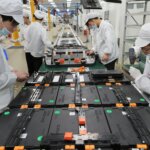Euro carmakers running on empty as EV batteries raw materials run out

- On top of the looming chip shortage, inadequate raw materials for EV batteries are making those vehicles more expensive, in turn threatening makers’ profit margins
- Analysts reckon that the supply chain may not be able to keep up with the current EV market demand
- Europe however is not slowing down when it comes to localizing its battery manufacturing capacities
In Europe, battery investments are booming thanks largely to rapidly growing electric vehicle (EV) sales over the past year. There are even numerous gigafactories planned in the pipeline throughout Europe, in efforts to push for EU-domestic production of EV batteries to reduce dependence from elsewhere. But just as the scene is really heating up on the continent, another challenge is taking shape.
Major carmakers including Volkswagen, Daimler and Stellantis have been struggling to secure their supplies of battery cells. And these days, the vehicle giants are finding it even tougher to get their hands on enough coveted minerals needed for the production of EV batteries such as lithium, nickel, manganese and cobalt. This is placing heavier constraints on Europe’s battery sector and the collective efforts to keep pace with demand, according to a report by Reuters.
To put things into perspective, global sales of EVs are forecast to grow more than 12-fold to 31.1 million by 2030, up from just 2.5 million vehicles in 2020, according to Deloitte. That also simply means that more factories for EV batteries are needed to keep up with the growing demand — and that’s exactly what Europe is trying to do.
At the moment, most of the world’s EV battery production is located in Asia. The main reason for the scarcity of raw materials is the low number of specialized suppliers, given how the existing ones are mostly concentrated in one region. Overall, China accounts for 75% of all battery production globally and for almost 80% of the refining capacity for rare minerals for EV production.
Hence why the government and the industry in Europe have mounted a major push to produce batteries domestically. Reuters highlighted in the same report that there are now nearly 50 planned battery plants projects in the EU. “Volkswagen alone plans six battery plants in Europe, while Daimler will build four with partners,” it said.
The report further added that should all those plans become reality, local production will be able to meet demand by around 2030, stating that, “About 640 gigawatt-hours (GWh) would be available, enough for average annual production of 13 million cars.”
YOU MIGHT LIKE

Why is digital twin tech needed for EV batteries?
Raw materials & EV batteries
Currently lithium comes mainly from Australia and Chile, cobalt from the Congo, and graphite from China. The largest processors of cathode and anode material are also from China, besides Japan. That said, it is inevitable that supplying critical ingredients like cobalt, lithium and nickel from China, Congo and Chile will not be enough to meet demand as prices are likely to soar. “If the nickel prices reach 50,000 dollars per tonne, the cost of an average EV could increase by 1,500 dollars,” Fleet Europe said in a report in August this year.
The same report highlighted the number of supplies needed for global EV production, based on 2019 estimates. The writer pointed how for the 2.1 million EVs that were sold that year — a whopping 65 kilotons of nickel, 19 kilotons of cobalt, and 17 kilotons of lithium were consumed in the process. By 2030, those numbers are expected to go up to 925 kilotons nickel, 185 kilotons lithium and 180 kilotons of cobalt.
Of all the raw materials needed for EV batteries, according to research by consultancy Rystad Energy, nickel could be one of the first battery minerals to experience shortages. By 2024, global demand for nickel will have risen from 2.5 million tons to 3.4 million tons — outstripping supplies, the group said. The firm added that for battery makers and car manufacturers, the crunch will be felt within the following two years, with “no obvious solution in sight”.









